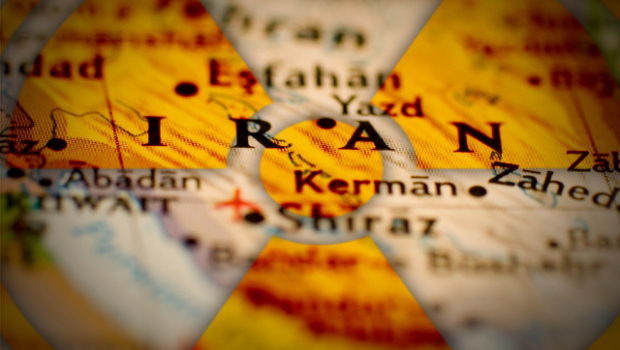by Jim Lobe
In its latest report on Iran’s nuclear program, the Iran task force of the Jewish Institute for National Security Affairs (JINSA) admits that it is divided over the value of the Joint Plan of Action (JPA), the Nov. 24 agreement between Iran and the P5+1, but that if after six months from the date of the JPA’s signing on Jan. 10 no final agreement is reached, the U.S. should support an Israeli attack on Iran if its government decides to carry one out. I’ll reprint the the executive summary below, but here’s the final paragraph:
The United States should move immediately to impose new sanctions and consider even tougher actions against Iran if no acceptable final is [sic] agreement is in place 180 days after the JPA’s formal implementation on January 20. At that time, the United States should do nothing that would impinge upon Israel’s ability to decide what actions it must take at that time, and indeed should support Israel if it takes military action.
This passage, of course, mirrors the provision in the Kirk-Menendez “Wag the Dog” Act of 2013 that similarly urges the U.S. to back Israel if its government feels “compelled to take military action in legitimate self-defense against Iran’s nuclear weapon program,” although it pushes the date forward to July 20 instead of at any time.
Now, JINSA claims that it has U.S. national security interests at heart, but it’s difficult to understand how U.S. backing for an Israeli attack on Iranian nuclear facilities will serve U.S. national interests if negotiators are still trying to work out the details of a final agreement six months from now. Indeed, such a move would be potentially catastrophic, not only for possibly involving the U.S. in a new Middle East war with a much bigger adversary than the Taliban or Iraq or Libya, but also because most experts believe that it would put a swift end to the international nuclear non-proliferation regime, isolate both Israel and the U.S., destroy the sanctions regime that the Obama administration has so painstakingly put together, and induce Iran to kick out IAEA inspectors and take its nuclear program underground. Most experts believe an Israeli attack could set back Iran’s nuclear program two years at most. So here we have JINSA insisting that we shouldn’t do anything to discourage Bibi Netanyahu to go for it!
As reader of this blog know, the JINSA task force is simply the latest incarnation of a mainly neoconservative group originally put together under the hawkish Bipartisan Policy Center in 2008. When its first report came out in the fall of that year, I called it a “roadmap to war” and have been diligently following its periodic reports ever since. Its membership has changed over time–it was weighted heavily toward staunchly pro-Israel personalities from both parties at the outset; it’s now disproportionately populated by former Bush aides, such as former Undersecretary of Defense for Policy Eric Edelman (who is co-chair of the task force), former Assistant Secretary of State for Arms Control and Nonproliferation Steve Rademaker, Dick Cheney’s former national security adviser John Hannah, and former State Department Counselor Eliot Cohen–although its ultra-hawkish message has remained consistent. As has its staff director, Michael Makovsky, a Churchill biographer who served as an oil expert in the Pentagon’s Office of Special Plans in the run-up to the Iraq war and previously lived on a settlement on the West Bank, according to various reports that he has never denied, so far as I am aware. Makovsky became JINSA’s CEO last year, and he took BPC’s task force with him.
Of course, the most interesting member of the task force is Amb. Dennis Ross, who served on the BPC task force at its birth until he entered the Obama administration in Jan. 2009 and soon found himself to be the NSC’s senior director for Iran until he left in late 2011 to become counselor of the Washington Institute for Near East Policy. Ross co-chairs the task force with Edelman.
Now, what is particularly curious about both Ross and this latest JINSA report is that the report doesn’t seem to correspond to his views. As you can see below, the executive summary asserts that the JPA is “deeply flawed,” but, at the report’s rollout Monday at JINSA headquarters, Ross spent most of his time defending the agreement (contrary to Jennifer Rubin’s assessment of his position–“Ex-Obama Adviser: Interim Deal is a Sham.”
“I’m not one of those who thinks the agreement is that bad,” he said, arguing, in effect, that he “could live with Iran having a limited enrichment program with a highly intrusive inspection regime,” unlike others on the task force who echo Netanyahu’s demand that Iran be permitted no enrichment.
That doesn’t mean that Ross isn’t a hawk. Indeed, he argued that the White House’s warning that adding new sanctions would destroy the diplomatic track and make war the only remaining option could easily be interpreted as bolstering Obama’s previous threat to take military action against Tehran unless a satisfactory agreement is reached. Ross made this argument in a more comprehensive exposition of his views about the JPA and the P5+1 process published in Politico Sunday, not an insignificant amount of which is inconsistent with the report by the task force which he chairs. Ross also made clear that he, like a couple other members of the task force, did not believe that a final agreement would be reached within six months, which, of course, raises the question of why the group set that as the date at which Israel should be given a green light to attack Iran.
I didn’t get a chance to ask Ross about that in the Q&A period. Makovsky, however, insisted that the report–except on the question of whether Iran could be permitted some enrichment as part of a final agreement–represented a consensus by the entire task force, which would include Ross. I asked Rademaker whether he thought that provision for an Israeli attack after 180 days was a good idea. “We didn’t have a long debate about this,” he told me, noting that “Israel is the most immediately threatened by Iran’s program.” He added that “there’s a lot of downsides to using military force,” but the threat of an Israeli attack could “enhance the prospect for successful diplomacy.”
In any event, here’s the executive summary:
Executive Summary
Preventing a nuclear-capable Iran remains the most pressing national security challenge facing the United States and its Middle East allies, and a permanent diplomatic settlement that fully addresses international security concerns remains the preferred means to achieve this objective. We judge this outcome to be more remote and harder to achieve now than before the P5+1 countries and Iran signed an interim deal in Geneva, known as the Joint Plan of Action (JPA), which went into effect January 20, 2014.The JPA is intended as an interim arrangement that pauses parts of Iran’s nuclear program during negotiations for a longer-term settlement. But it also sets out so-called “elements of the final step of a comprehensive solution.” We believe the JPA is deeply flawed because the combination of interim and final concessions it contains undermine the effort to prevent a nuclear Iran.
Our previous report, issued in the run-up to Geneva, spelled out six principles to which any deal must conform to protect U.S. national security interests. To be acceptable, we argued any deal must require Iran to resolve outstanding international concerns, adhere to international legal requirements and roll back its nuclear program. It would also need to put in place a strict inspections regime and clear deadlines for Iran to uphold its commitments. Finally, we made the case that to obtain such a deal the United States would have to negotiate and enforce it from a position of strength, to make it unmistakably plain to Tehran that it has the most to lose from the failure of diplomacy.
The aim of this report is to: show where this agreement falls short of the parameters dictated by our principles; explain the risks generated by these shortcomings; and provide recommendations for pursuing a final agreement to prevent a nuclear Iran.
The JPA fails to meet the standards we had previously laid out, both in the interim and the long term. It allows Iran to retain enough key aspects of its nuclear program to continue progress toward nuclear weapons capability – including its 3.5 percent enriched uranium stockpile, existing enrichment capacity and ability to improve the performance of its extant centrifuges – and even authorizes it to construct an additional nuclear facility. But the JPA does not require Iran to address its unresolved legal obligations. Instead, it implicitly recognizes Iran’s proclaimed right to enrich in practice, undermining the Nuclear Non-Proliferation Treaty (NPT), and envisions a time limit on any Iranian concessions. Worse still, it suggests that after the conditions of a final deal lapse, Iran will “be treated in the same manner as that of any” state, as if it had not pursued nuclear weapons in defiance of international law or sponsored global terrorism for more than three decades. Finally, the JPA weakens U.S. leverage to pursue even this flawed long-term deal, both by beginning to unravel the existing international sanctions regime and by seeking to limit Congress’s power to pass additional measures. Overall, this does not buy time for the P5+1 to negotiate a final deal. Instead, the JPA makes it possible for Iran to progress toward undetectable nuclear weapons capability without even violating the agreement.
These shortcomings complicate prevention of a nuclear Iran, undermine the nonproliferation regime and contribute to regional instability. To stave off these risks, the United States must now do the best it can with what time remains to protect its security interests, as well as those of its allies in the region.
As we made clear in our previous reports, this task force continues to believe the optimal outcome would be an Iran with no enrichment capability whatsoever. Because the JPA precludes this, and contains the flaws outlined above, some task force members believe the deal is unacceptable. These task force members believe the United States must still press for a final agreement permitting Iran to keep only a civilian nuclear power program but no enrichment facilities or capabilities.
Other task force members believe the JPA, while not the best solution, provides an opportunity to test Iran’s true intentions definitively with an endgame proposal. By offering Iran much of what it claims to want – civilian nuclear power and enrichment – while also containing the most stringent possible limits to preclude nuclear weapons capability, U.S. negotiators can give Iran the chance to prove whether or not it is serious in its declared peaceful aims. To be acceptable, these task force members believe, a final deal must limit Iran to: no enrichment beyond 5 percent; no 20 percent enriched uranium stockpile, and no more than 1,000 kilograms (kg) of 5 percent; no second-generation centrifuges, and no more than 1,000 installed first-generation centrifuges; deactivation of the Fordow enrichment facility; and no plutonium track.
All task force members agree an acceptable final deal must require Iran to meet all of its international legal obligations, come clean about its past nuclear weapons research and work, and accept a much more intrusive inspections regime.
Given that the JPA grants Iran greater concessions than it extracts, and considering how close Iran is to nuclear weapons capability, it is critical such a final, permanent deal which fulfills our principles be put in place as soon as possible, preferably before the JPA’s six-month interim expires. Achieving this will require the United States to use all forms of leverage available to induce Iran to accept it, including intensified sanctions, credible military preparations, tighter cooperation with regional allies and clear support for a potential Israel strike.
The United States should move immediately to impose new sanctions and consider even tougher actions against Iran if no acceptable final is agreement is in place 180 days after the JPA’s formal implementation on January 20. At that time, the United States should do nothing that would impinge upon Israel’s ability to decide what actions it must take at that time, and indeed should support Israel if it takes military action.






The Jewish Institute for National Security Affairs (JINSA) could not possibly suggest leaving Israel to fight alone against Iran.
Of course that is exactly what we should do, and what Obama no doubt would want to do.
It is remarkable enough that it won’t support Netanyahu against the Administration on the sanctions proposals. Remember who they are.
The US and NATO-chief AFR claim that the missiles in Romania, Poland and on 32 ships in the Mediterranean Sea are to defend us from Iran. However, “Whether they are on ships or land, they are still a necessary component for an unanswerable first strike” according to missile engineer Bob Aldridge-www.plrc.org. This leads to Launch On Warning, probably by 2017 and Suicide. We must make Pentagon-planners and Congressmen/women understand: THERE IS NO DEFENSE AGAINST LAUNCH ON WARNING !!!
The way I see it, Israel should be more worried about the outcome of the Syria conflict than the Iran threat. If Assad goes, Israel will have Al Qaeda and friends as their next door neighbor. Think about it, once the new caliphate gets their act together, it will most definitely look to take back the holy land. This time they will have all the time in the world and ample supply of willing jehadis. The holy war will go on for ever and it will draw from all over. It is amazing how little some of these so called “think tanks” know about the region, its people and their history. Maybe Barack and gang are starting to figure it out. US needs Iran more than Iran needs them. And Israel, better stay quiet when it comes to Iran as the alternative is truly horrible for her.
We have no treaty of any kind with Israel, never had; therefore, we nave no obligation whatsoever to rush to Israel’s aid if it should launch a war of aggression against Iran. JINSA may squawk all it wants, should this happen, but it must be told that Israel would be on its own should it attack.
Let the Zionist Entity beg for help from its new top puppet, Saudi Arabia, if it gets into trouble with the attack. The Saudis may provide Israel with loads of $$$$$$$$$; but, all the $$$$$$$$$ in the world won’t save Israel’s butt when Iran retaliates with highly advanced, accurate, non-nuclear missiles. The Saudis aren’t likely to sacrifice their pilots or their highly expensive warplanes, despite their newly made ties with the Zionist Entity. As it is now, the Saudis are providing the “rebels” in Syria with both weapons and $$$$$$$$$$; a moderate number of their citizens are actually fighting in Syria with al-Nusra Front and some other Jihadist groups. No Saudi pilot(s) has bombed Syrian government-held areas; so, why would they risk bombing Iran’s nuclear facilities?
Norman is absolutely right. I fully agree with his statements. Israeli firsters and dual-loyalty supporters of Israel constitute the biggest threat to the U.S. today. Iran is no threat. Only liars and fools think that Iran, with no nuclear weapons, no missiles capable of delivering a nuclear warhead to the U.S., can constitute a threat to America. Fanatic Israeli supporters are doing everything possible to force the U.S. into a war with Iran. They want Iran destroyed, with no cost to themselves.